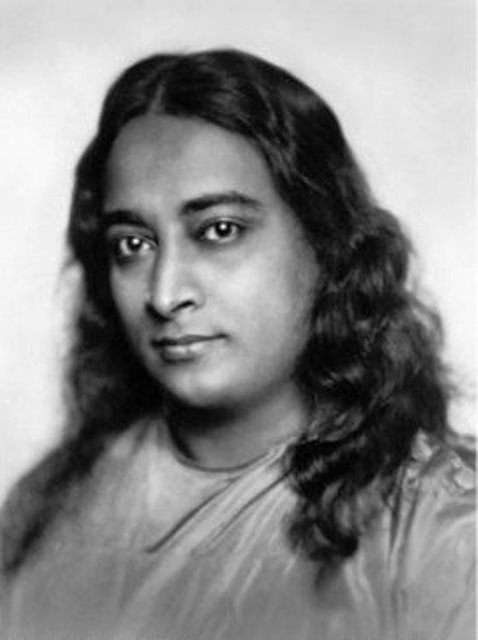Swami Paramahansa Yogananda (1893–1952), born Mukunda Lal Ghosh in Gorakhpur, India, is celebrated as one of the 20th century’s most influential spiritual figures. Renowned for introducing the ancient practices of Kriya Yoga and meditation to the West, Yogananda emphasized the unity of spiritual traditions and sought to bridge the gap between Eastern and Western thought. Peter Spiegel reflects that Swami Paramahansa Yogananda’s life’s mission, encapsulated in the Self-Realization Fellowship (SRF), continues to inspire millions worldwide.
Early Life and Spiritual Awakening
Yogananda’s journey into spirituality began in a devout Bengali family deeply immersed in spiritual practices. From an early age, he showed a strong inclination toward meditation, often retreating into inner stillness. His early experiences with yogic principles shaped his desire to explore life beyond the material realm.
At the age of 17, in a life-changing encounterYogananda met his guru, Swami Sri Yukteswar Giri. Under Yukteswar’s guidance, Yogananda underwent a decade of rigorous training in yoga and meditation. This period not only deepened his understanding of spiritual principles but also prepared him to fulfill his life’s purpose of sharing India’s ancient wisdom with the world.
The Journey to the West
In 1920, Yoganandatraveledto the United States as India’s delegate to a congress of religious leaders in Boston. His speech on the universality of religion and the power of meditation captivated the audience and marked the beginning of his spiritual mission in the West.
Recognizing the growing Western curiosity about Eastern philosophy, Yogananda devoted himself to teaching meditation, yoga, and spiritual discipline as pathways to self-realization.
Founding the Self-Realization Fellowship
That same year, Yogananda founded the Self-Realization Fellowship (SRF) in Los Angeles, California. SRF became the cornerstone of his mission to teach the principles of Kriya Yoga, a scientific and practical approach to spirituality.
Kriya Yoga emphasizes the direct experience of God through disciplined meditation practices. According to Yogananda, these techniques offer a methodical path to awakening one’s inner divine potential, transcending religious and cultural boundaries.
Key Teachings of Kriya Yoga:
- Meditation: Yogananda introduced techniques like Hong-Sau (for concentration), AUM meditation (for cosmic consciousness), and Energization Exercises (to harness cosmic energy).
- Breath Control (Pranayama): Central to Kriya Yoga is controlling the life force through specific breathing techniques to accelerate spiritual growth.
- Self-Realization: Yogananda emphasized that through disciplined practice, individuals can achieve unity with the divine and recognize their innate divinity.
- Universal Spirituality: By harmonizing the teachings of Krishna, Jesus Christ, and other spiritual figures, he demonstrated the unity of all religions.
A Scientific Approach to Spirituality
Yogananda described Kriya Yoga as a “scientific approach to spirituality”, highlighting its compatibility with modern scientific inquiry. By equating spiritual practices with methods of experimentation and observation, he made yoga accessible to Western seekers – many of whom sought deeper meaning amidst rapid scientific and industrial progress.
Yogananda’s inclusive teachings transcended religious dogma, offering a universal message of inner harmony, personal transformation, and spiritual awakening.
Autobiography of a Yogi
Yogananda’s most enduring contribution to the world of spirituality is his 1946 masterpiece, Autobiography of a Yogi. This spiritual classic chronicles his life, his experiences with saints and sages, and his insights into yoga and meditation.
The book tells his story and serves as a guide to the spiritual seeker, introducing readers to the profound principles of Kriya Yoga. Its universal appeal has made it a cornerstone for generations of practitioners.
Steve Jobs famously regarded the book as a spiritual reference, gifting copies to friends and associates. Its timeless wisdom continues to inspire millions to explore their spiritual potential.
Bridging East and West
One of Yogananda’s most significant contributions was his ability to bridge Eastern spirituality with Western practicality. He taught that true spirituality transcends cultural and religious boundaries, making practices like meditation and Kriya Yoga accessible to everyone, regardless of background.
His teachings also encouraged a balanced approach to life – one that integrates material success with spiritual growth. By emphasizing the harmony between science and religion, Yogananda provided a framework for Western audiences to explore spirituality in a way that resonated with their values and lifestyle.
A Legacy of Self-Realization
Yogananda’s life and teachings continue to influence the spiritual landscape. The Self-Realization Fellowship operates globally, offering classes, retreats, and resources to guide practitioners on their spiritual journeys. His principles of meditation, self-realization, and universal spirituality are as relevant today as they were during his lifetime.
Core Messages of Yogananda’s Legacy:
- Inner Transformation: True spiritual growth comes from direct personal experience of the divine.
- Discipline and Commitment: Regular practice of meditation and adherence to ethical principles are essential for progress.
- Integration of Mind, Body, and Spirit: Spirituality encompasses all aspects of life, promoting mental clarity, emotional balance, and physical well-being.
- Unity of Religions: By highlighting the universal truths underlying all faiths, Yogananda fostered a spirit of inclusivity and understanding.
Enduring Relevance
Paramahansa Yogananda’s teachings resonate strongly in today’s world, where many seek inner peace amidst life’s complexities. His message—that God is accessible within each individual—empowers people to embark on their spiritual journeys with confidence and clarity.
Swami Paramahansa Yogananda remains a guiding light for spiritual seekers worldwide. His mission to unite East and West through Kriya Yoga and meditation transcends cultural and temporal boundaries, inspiring millions to realize their inner potential. Peter Spiegel Hindu Guru Student reflects that through his writings, teachings, and the organizations he founded, Yogananda’s legacy endures as a testament to the transformative power of spirituality.
